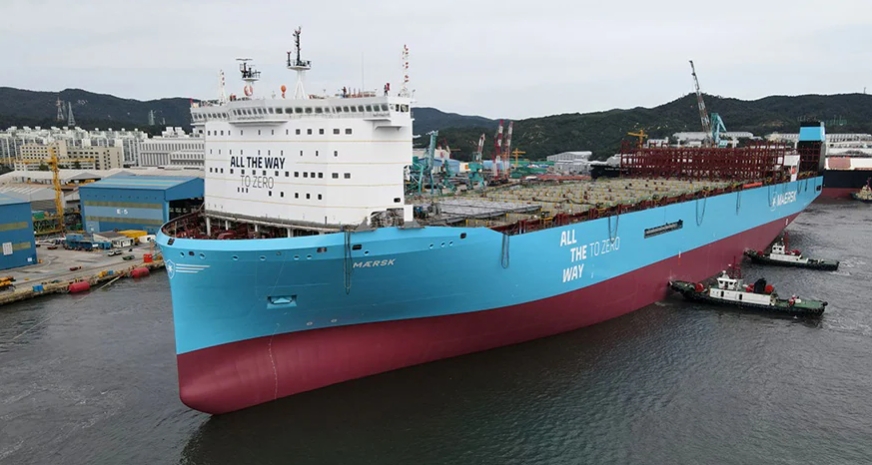

Maersk responded to continue circling the Cape
After 15 months of fighting between Israel and the Palestinians, there is a formal ceasefire. In response, the Houthis issued a statement saying that they would stop all attacks on non-Israeli ships in response to the ceasefire agreement. This news makes the industry full of expectations for the resumption of Red Sea navigation.
However, as a bellwether of the global shipping industry, Maersk gave a different view in the Red Sea/Gulf of Aden sailing update released on January 24, 2025.
Despite the recent ceasefire agreement between Israel and Hamas, and the announcement by the Houthis that they plan to cease attacks in the region while peace talks continue, Maersk will continue to choose to bypass Africa via the Cape of Good Hope, given the security risks for commercial vessels crossing the Red Sea and the Bab al-Mandeb Strait, until the safety of the Bab Al-Mandeb Strait is ensured in the long term.
Maersk stressed that its decision was based on safety considerations for crew, ships and customers' cargo, with the aim of optimising stability and certainty in the supply chain. If the use of routes in the region is not fully ensured, the network may need to be adjusted again, causing inconvenience at the operational level and supply chain management.
Ko also expressed his views on current US President Donald Trump's remarks that he wants the US to develop its own shipbuilding industry rather than rely on Chinese shipyards. This change, he believes, will not happen overnight. If tariffs were imposed on Chinese-made vessels today, it would be at least 6-7 years before the first commercial vessel from an American shipyard would be launched. As a result, it will take longer to achieve this politically.
Despite the ceasefire in the Israeli-Palestinian conflict and the announcement by the Houthis that they have stopped attacking commercial vessels, global shipping giant Maersk remains alert to the security risks of the Red Sea route and continues to opt for a detour to Africa via the Cape of Good Hope. At the same time, Marski also assessed the impact of the Sino-US tariff trade war on the global supply chain, and believes that it will not have a significant impact on the global supply chain in the short term.
However, as a bellwether of the global shipping industry, Maersk gave a different view in the Red Sea/Gulf of Aden sailing update released on January 24, 2025.
Despite the recent ceasefire agreement between Israel and Hamas, and the announcement by the Houthis that they plan to cease attacks in the region while peace talks continue, Maersk will continue to choose to bypass Africa via the Cape of Good Hope, given the security risks for commercial vessels crossing the Red Sea and the Bab al-Mandeb Strait, until the safety of the Bab Al-Mandeb Strait is ensured in the long term.
Maersk stressed that its decision was based on safety considerations for crew, ships and customers' cargo, with the aim of optimising stability and certainty in the supply chain. If the use of routes in the region is not fully ensured, the network may need to be adjusted again, causing inconvenience at the operational level and supply chain management.

Ko also expressed his views on current US President Donald Trump's remarks that he wants the US to develop its own shipbuilding industry rather than rely on Chinese shipyards. This change, he believes, will not happen overnight. If tariffs were imposed on Chinese-made vessels today, it would be at least 6-7 years before the first commercial vessel from an American shipyard would be launched. As a result, it will take longer to achieve this politically.
Despite the ceasefire in the Israeli-Palestinian conflict and the announcement by the Houthis that they have stopped attacking commercial vessels, global shipping giant Maersk remains alert to the security risks of the Red Sea route and continues to opt for a detour to Africa via the Cape of Good Hope. At the same time, Marski also assessed the impact of the Sino-US tariff trade war on the global supply chain, and believes that it will not have a significant impact on the global supply chain in the short term.





